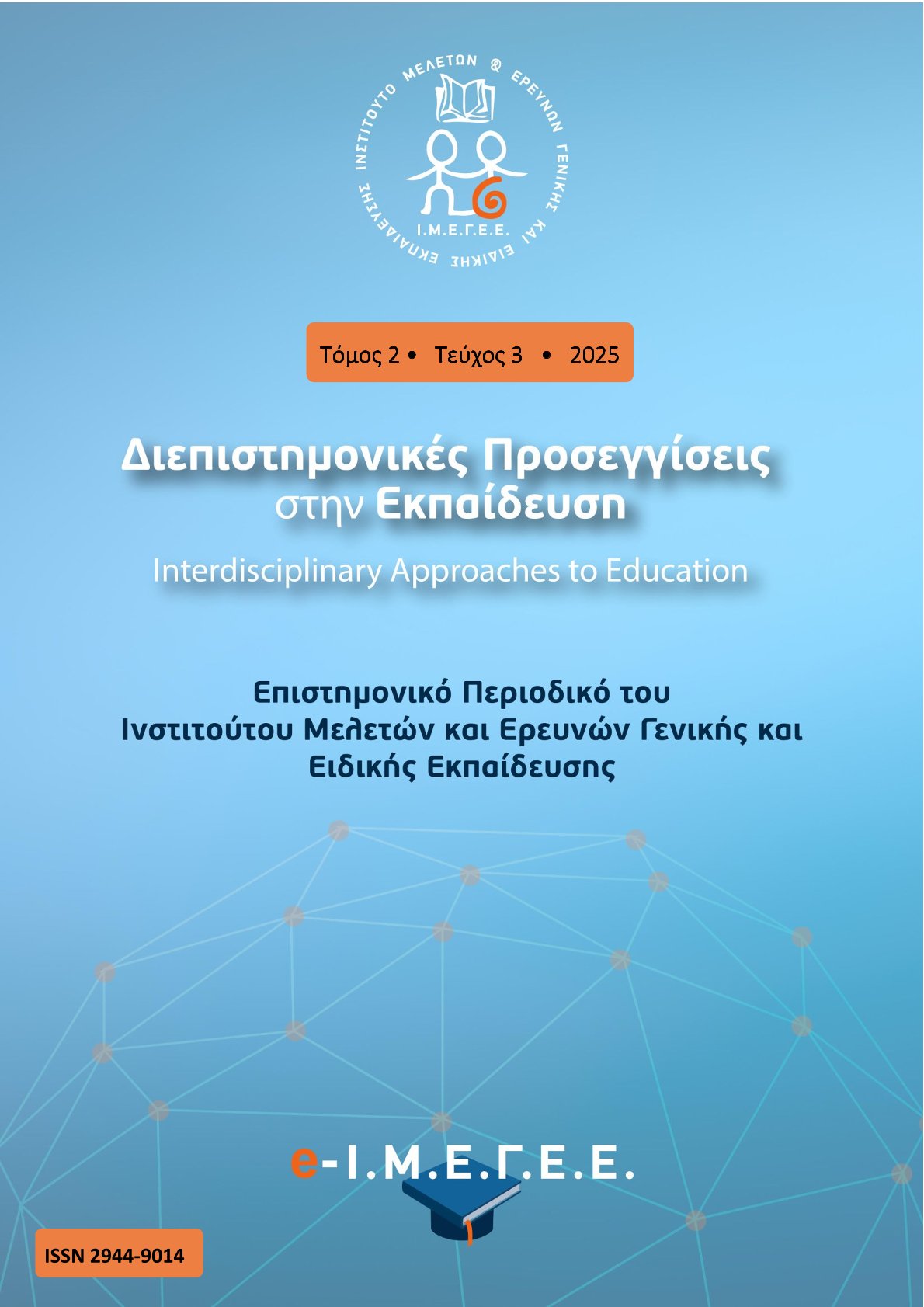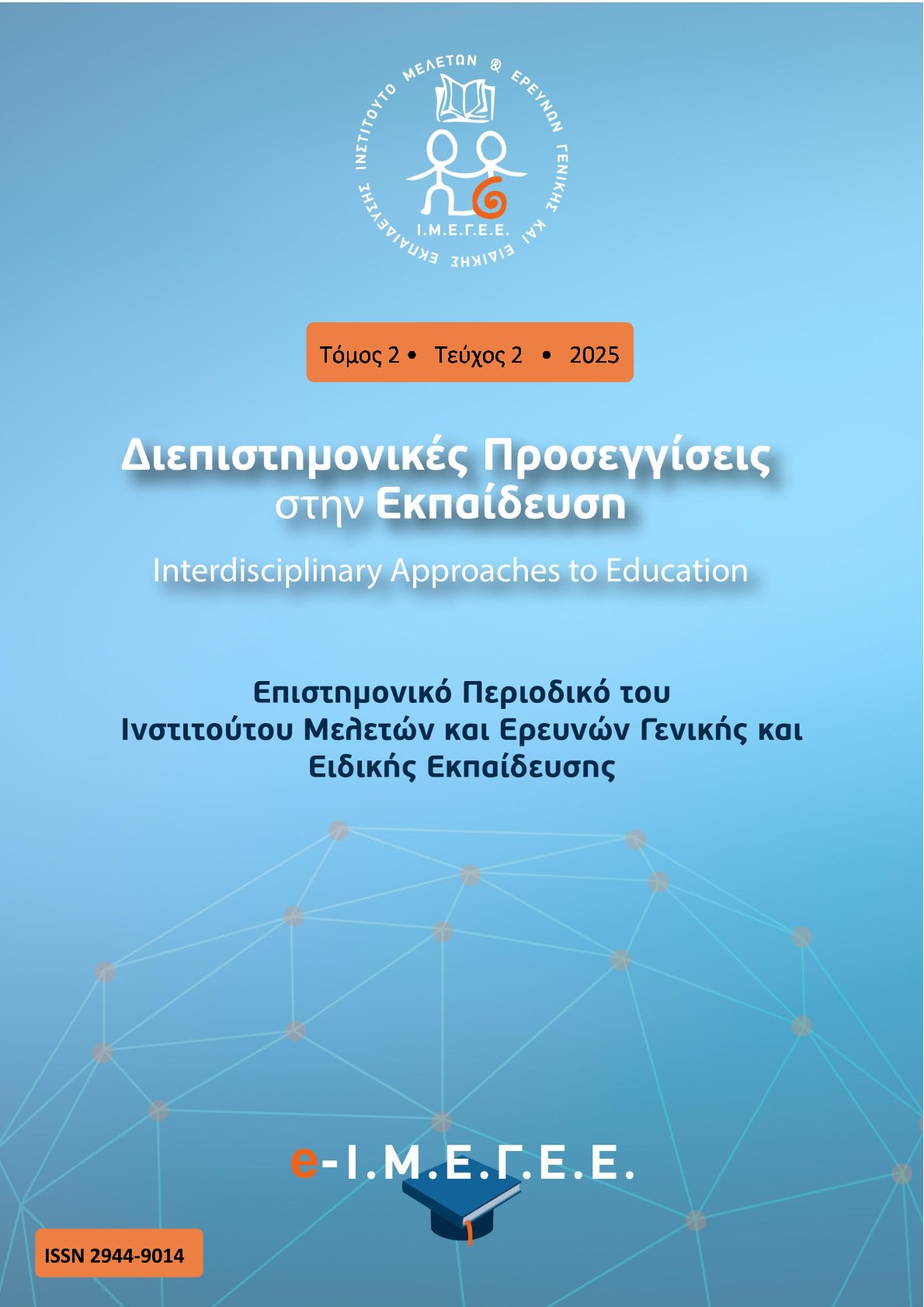Τεχνητή Νοημοσύνη και Ειδική Αγωγή και Εκπαίδευση: Η Συμβολή των Κοινωνικών Λειτουργών στον Εξατομικευμένο Εκπαιδευτικό Σχεδιασμό
Abstract
Artificial Intelligence (AI) is continuously transforming pedagogical and social practices, significantly influencing the support provided to children with Special Educational Needs (SEN). The integration of AI into the design of Individualized Educational Programs (IEPs) generates optimism regarding accuracy and efficiency, while simultaneously raising concerns about ethical, technical, and humanitarian issues. This study aims to capture the perspectives of social workers regarding the use of AI in the planning and implementation of supportive and educational interventions for children with SEN and their families. Emphasis is placed on exploring the expectations, reservations, and institutional/ethical considerations of social workers concerning the utilization of AI in school social work. A quantitative approach with a descriptive research design was adopted, using a structured, closed-ended questionnaire as the data collection tool. The study involved 100 social workers employed in school units and special education structures across Greece. Data collection was conducted online via the Google Forms platform between April and May 2025. Participants were selected through convenience sampling. Descriptive statistical analysis was employed. Participants acknowledged several advantages of AI, including enhanced diagnostic accuracy, individualized interventions, and facilitation of educational program management. At the same time, concerns were raised about the protection of personal data, ethical implications, professional competence, and the risk of dehumanizing the support relationship. AI is viewed as a tool with significant potential, provided that its implementation is guided by pedagogically sensitive ethical frameworks and institutional safeguards. Ongoing professional training, transparency in usage, and a view of technology as an enhancement—rather than a replacement—of the human relationship emerge as central prerequisites for its sustainable integration into social work with children with SEN and their families.
Article Details
- How to Cite
-
Γκιαούρη Σ., & Κολοβού Σ. (2025). Τεχνητή Νοημοσύνη και Ειδική Αγωγή και Εκπαίδευση: Η Συμβολή των Κοινωνικών Λειτουργών στον Εξατομικευμένο Εκπαιδευτικό Σχεδιασμό. Interdisciplinary Approaches to Education, 2(3). https://doi.org/10.12681/.41865
- Section
- Articles
Ενημέρωση για τα πνευματικά δικαιώματα
Οι συγγραφείς των άρθρων που δημοσιεύονται στο περιοδικό διατηρούν τα δικαιώματα πνευματικής ιδιοκτησίας επί των άρθρων τους, δίνοντας στο περιοδικό το δικαίωμα της πρώτης δημοσίευσης. Άρθρα που δημοσιεύονται στο περιοδικό διατίθενται με άδεια Creative Commons 4.0 και σύμφωνα με την άδεια μπορούν να χρησιμοποιούνται ελεύθερα, με αναφορά στο/στη συγγραφέα και στην πρώτη δημοσίευση για μη κερδοσκοπικούς σκοπούς και με δικαίωμα τροποποίησης μόνον με παρόμοια διανομή (αν αναμείξετε, τροποποιήσετε, ή δημιουργήσετε πάνω στο υλικό, πρέπει να διανείμετε τις δικές σας συνεισφορές υπό την ίδια άδεια όπως και το πρωτότυπο).
Απαγορεύεται η αντιγραφή, αποθήκευση και διανομή της παρούσας εργασίας, εξ’ολοκλήρου ή τμήματος αυτής, για εμπορικό σκοπό. Επιτρέπεται η ανατύπωση, αποθήκευση και διανομή για σκοπό µη κερδοσκοπικό, εκπαιδευτικής ή ερευνητικής φύσης, υπό την προϋπόθεση να αναφέρεται η πηγή προέλευσης και να διατηρείται το παρόν µήνυµα. Ερωτήματα που αφορούν τη χρήση της εργασίας για κερδοσκοπικό σκοπό πρέπει να απευθύνονται προς τους συγγραφεα-είς. Οι απόψεις και τα συμπεράσματα που περιέχονται σε αυτό το έγγραφο εκφράζουν το-ους συγγραφέα-είς και δεν πρέπει να ερμηνευθεί ότι αντιπροσωπεύουν τις επίσηµες θέσεις του Ινστιτούτου Μελετών και Eρευνών Γενικής και Ειδικής Εκπαίδευσης (Ι.Μ.Ε.Γ.Ε.Ε.).
Copyright notice
Authors retain copyright and grant the journal right of first publication with the work simultaneously licensed under a Creative Commons Attribution NonCommercial License that allows others to share the work with an acknowledgement of the work's authorship and initial publication in this journal.




